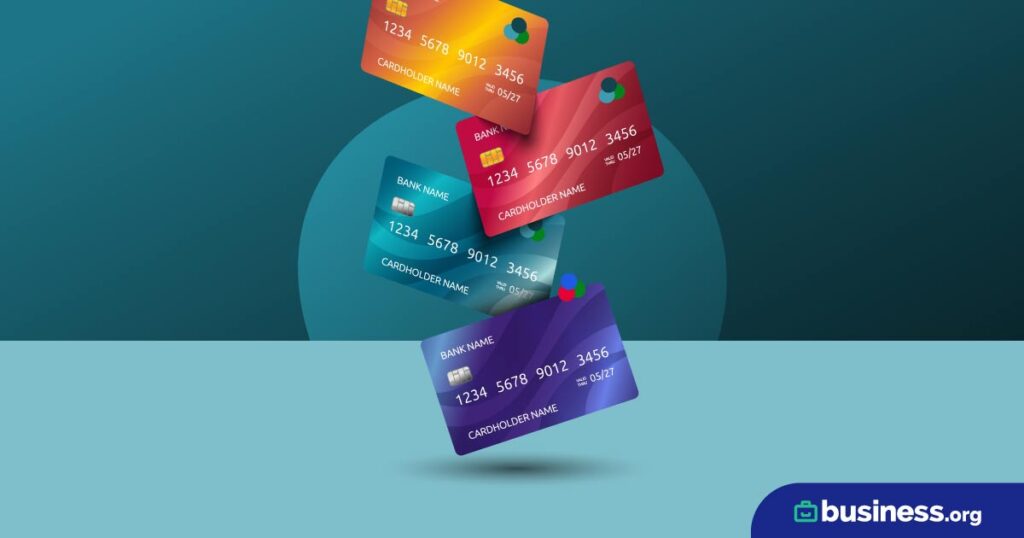We are committed to sharing unbiased reviews. Some of the links on our site are from our partners who compensate us. Read our editorial guidelines and advertising disclosure.
How to Monetize a Blog in 2023
We all dream of the perfect business: the one that makes money without making you slave away from nine to five every day. And for many entrepreneurs, blogging is a great way to earn passive income.
The trouble is, most people can’t just start a blog and make money overnight. Monetizing your blog takes time, patience, and perseverance, as it can take years of hard work before your monetization strategies start paying off.
That said, everybody has to start somewhere, and we’ve got the tools to help. Whether you’re a new blogger looking to make money talking about your favorite topic or an established company looking to diversify its revenue stream, these 13 simple steps will get you started on the path toward running a profitable blog.
How to make money blogging
1. Build a following
If you want to make money blogging, the first thing you need to do is gain a following—because honestly, it doesn’t matter how many banner ads you throw up on your site if nobody’s reading. So before you get too carried away with the other monetization options on our list, start finding ways to build your blog traffic and connect with your target audience.
First and foremost, make sure your website is professional and usable. Online users have a short attention span, so you want a site that grabs attention (in a good way), appeals to your audience, and appropriately represents your brand. You should also optimize your site for search engines; that way, when your users search for relevant keywords, your website pops up high in the search engines’ result pages.
Next, you’ll want to create relevant content. If you’re running a food blog, you may think a series of blog posts on the chemical makeup of coconut water is interesting, but chances are your users just want inventive, original recipes using coconut water. So make sure your blog posts match up with your audience’s interests.
Once you’ve got a handle on your blog content, it’s all about promotion. Build a list of email subscribers, then send out a weekly newsletter. Email marketing helps build brand loyalty, which ultimately means more robust blog traffic.
Social media is also a great marketing technique for bloggers. You can share new content on Facebook and Twitter, take industry-relevant photos and post them on Instagram, create online polls—the world’s your oyster. Many people also use their social media to connect and collaborate with other influencers in their niche, which helps build new traffic and generate brand loyalty.
If that sounds like a lot of work, that’s because it is. But having a solid following and steady blog traffic is the foundation of all other blog monetization techniques, so it’s definitely worth your time.
2. Accept donations
So how do you make money blogging while you build your blog traffic? One of the easiest ways is to simply ask for donations.
Ask readers to make a small donation to the site so you can keep producing content they like. Sites like Wikipedia see great success with this strategy, and monetizing your blog with donations requires very little extra work on your part.
Crowdfunding sites like Kickstarter and GoFundMe are great platforms if you want to monetize your site through donations. Here’s everything you need to know about crowdfunding before you get started.
3. Try freelance blogging
Another way to build your blog traffic is to write blog posts for other websites.
To do this effectively, you’ll want to find other sites within your niche and reach out to see if they pay for freelance content. If they do, you can start making money off your blogging skills while enjoying the following benefits:
- Increased exposure to your target audience
- Free advertising for (and links to) your site (especially in your author bio or your introduction)
- An up-close-and-personal look at your competitors’ editorial process and standards
Freelance blogging also lets you get to know the people in your industry, which helps you create better content that’s geared toward the interests of your subscribers. And you get paid for your work, which is a huge plus.
4. Allow advertising
A lot of people get squeamish when it comes to on-site ads, and we get why. Too many people go overboard with their ads, which makes their site look spammy and unprofessional. That said, it is possible to incorporate advertising into your site without making your users fear getting a computer virus.
There are a few different types of advertising you can use to earn money:
- Pay per click (PPC) ads: You earn money every time somebody clicks on the ad. If you have a Google AdSense account, you’re using PPC ads.
- Cost per mille (CPM) ads: You get paid a flat rate for every 1,000 impressions an ad receives. Most banner ads fall into this category.
- Pay per action ads: You’re paid every time someone clicks on the ad and completes a specified action (like buying a product or requesting a quote).
- Personal sale ads: Advertisers pay you up front to display ads on your site.
Though on-site advertising is one of the most common blog monetization strategies, it isn’t particularly lucrative unless your site gets thousands of users per day. So if you don’t get a lot of traffic (yet), you may want to think strategically about your content and place your highest-paying ads on the pieces your audience interacts with the most.
5. Use affiliate marketing
Another way to make money off the content you’re already writing is to use affiliate marketing.
Basically, affiliate marketing works off a pay-per-click or pay-per-action model (just like ads). The difference? Affiliate marketing doesn’t use flashy billboard-like display ads. Instead, you just include an affiliate link within your content.
Affiliate advertising is great for bloggers because it allows you to make money when your partners sell the products you write about. Not too shabby since you don’t have to make or distribute the product to rake in that sweet, sweet affiliate income.
The trick is, you’ve got to be careful about which products you recommend in your content. For instance, if you run a travel blog, a link to a kitchen supply store would seem out of place for your niche. Your primary focus should be on providing value for your audience—whether they’re checking out your social media page or reading your blog posts.
To get started, try googling “[your industry] affiliate programs” to see if there are any private affiliate programs for your niche. You can also search Facebook for affiliate program groups, scope out forums, and subscribe to industry-specific blogs and newsletters for business owners.
You can also check out the biggest affiliate marketing sites to see if they offer any affiliate partnerships in your niche. Here are a few to get you started:
By signing up I agree to the Terms of Use and Privacy Policy.
6. Create premium content
Presumably, by this point, you’ve had lots of chances to interact with your audience, so you should have insight into the types of content they need (and can’t get anywhere else). If you know you’ve got a piece of content that your users need, you may want to make it “premium content.”
What is premium content? Basically, it’s content that your audience has to pay to access, and it can be any kind of media. If you’re running a marketing blog, for example, you could try making these:
- A webinar on how to monetize a blog
- An online course to help blog owners learn about search engine optimization
- An e-book about your experience making money as a blogger
- A white paper about net neutrality and its effect on online marketing
The right premium content for your website will depend on your niche, but the principle is the same no matter what you write about: if you put your most valuable content behind a paywall (and do the work to drum up interest in that content), users will pay to access it.
However, blog owners need to be careful not to overuse this technique. Not every piece of work you create needs to be a premium piece, and people get sick of websites where everything is hidden behind a paywall.
But if you do it right, premium content is one of the top ways of blogging for money. Plus, it gives your blog an extra layer of professionalism and expertise that’s sure to make your site an authority in your niche.
7. Set up membership tiers
Setting up membership tiers is a great way to stabilize your monthly blogging income.
Similar to premium content, membership tiers place select work behind a paywall. But with membership tiers, people can sign up and pay a monthly or yearly subscription fee. In exchange, they get early access to new blog posts, exclusive members-only content, or any other perks you choose to offer.
With membership tiers, you get a more steady cash stream (since you’re not relying on one-time sales and payouts). The downside? You may have to put in more work to produce enough content for both your members and your general public.
8. Share sponsored content
One of the most lucrative ways to make money blogging is by creating sponsored content.
Sponsored content can be videos, podcasts, blog posts, reviews—anything that can be paid for by a sponsor. And unlike affiliate marketing, sponsored content isn’t dependent on whether you drive sales or clicks. Instead, you get paid up front; all you have to do is create the content.
Monetizing your blog with sponsored content can be a bit of a risky venture, though, if you’re not careful. To the savvy user, a sponsored post may come across as basic advertising, disguised as a genuine piece of content. That may rub your audience the wrong way.
Fortunately, there are ways to lower that risk. For starters, you shouldn’t review just any company’s products. Sponsored content should always fit within your blog’s niche, so no gushing about scrapbook paper if you’re running a health blog.
You should also tell your readers whenever they’re viewing sponsored content and disclose whether you’re making money off the post. Being transparent about how you’re earning money is a great way to build and maintain trust with your audience—plus, it’s required by the Federal Trading Commission (FTC).
9. Sell merchandise
Once you have a steady following, you may want to consider merchandise sales.
Think about your content. What do people love about it? Does your site have a catchphrase? Is your logo widely recognizable within your niche? Once you have a few design ideas, slap them on some merchandise. If you’ve done a good job building brand loyalty, it’s likely that your users will buy.
Merchandise is one of the best monetization options for blogs because you don’t have to spend a lot of time on it (apart from the design phase) and most merch is relatively cheap to produce. Ultimately, that makes this monetization strategy a pretty profitable one.
Plus, you can wear and use your merchandise in your social media posts and encourage readers to post photos of themselves wearing your merch. That’s great for engagement and brand building, plus it drives more traffic to your site (resulting in more profit on your other monetization strategies).

Customize your website with an easy-to-use site builder that’ll make your brand look professional and polished in no time.
10. Syndicate your writing
When looking for ways to make money off your blog, it pays (literally) to think outside the box.
Bloggers with large followings can make extra money by allowing their blog posts and other content to be syndicated across other sites in their niche. That means you grant specific online publications the right to publish your articles, infographics, images, and other content in exchange for payment.
Like freelance blogging, this technique gives you access to a broader audience, allowing you to reach lots of readers who don’t usually see your work. But you have to be careful to screen websites carefully before you grant them syndication rights. Again, you wouldn’t want your gardening blog post to appear on a music website, as it would hurt your authority and make you look like a spammer.
11. Sell a service or product
Making money from your blog gets easier and easier as your blog traffic grows. Once you hit the point where you have an active online following and a steady-ish revenue stream, you’re ready for the big leagues: selling a relevant product or service.
Some bloggers make big money by securing book deals (or self-publishing), then selling the books on their website. Your book can be a collection of social media posts and Instagram pictures, a compilation of your most popular content, or something completely original.
Depending on your niche, you could also work with a developer to make an app or software to help people in your industry. So a craft blogger could create an app that helps other crafters design their projects and figure out exactly which materials they’ll need.
Coaching services are also big moneymakers. Naturally, coaching isn’t right for every niche, but you can play around with the idea to customize it to your industry. So for instance, a fashion blogger might offer styling consultations.
Finally, there’s public speaking. Selling your services as a public speaker can be extremely lucrative, especially if you’re good at it. In fact, it’s one of the most financially profitable ways of monetizing the success of your blog, since you can create one presentation and use it over and over again in different settings.
Once you decide which products and services you want to offer, it’s time to tweak your website to optimize sales. The most successful blogs essentially make a sales funnel that guides readers from their social media pages to their blog to their services page. This allows your users to develop a sense of loyalty to you and your brand, which makes them more likely to hire you or buy your product.
Of course, selling products, optimizing your site, and marketing your offerings won’t do you a lot of good unless people are actually visiting your site. So we wouldn’t start making business cards for your public speaking career until you’ve really nailed down your online audience.
12. Flip your blog
Have you ever heard of someone flipping a house? Believe it or not, there are bloggers who do the same thing with their blogging websites.
Blog flippers start by purchasing a domain that looks strategic and promising. They look at emerging industries and products, then try to find relevant domain names that haven’t been claimed. Then they use their email marketing and search engine optimization skills to increase the website’s blog traffic. From there, selling the domain (and website) is pretty straightforward, as most new owners want the benefit of an established site without putting in the work that most first-time bloggers have to go through.
Though selling your blog isn’t exactly the same as monetizing your blog, we thought it was worth mentioning because—let’s face it—some of us are good at the marketing, writing, and audience-building parts of running a blog, but are really bad at successfully converting that traffic into actual dollars.
If you’re fortunate enough to buy and adequately develop a domain that someone else wants, it can have a huge payoff—millions of dollars huge. Granted, deals that lucrative are pretty rare, but who’s to say it couldn’t happen to you?
Let's sum up
Straight talk? Figuring out how to blog and actually make money from it is difficult. There is no one-size-fits-all solution, as success in blogging often comes down to your personal and financial commitment to your site.
However, if you focus on building a unique, relevant site that engages your users, you can start to capitalize on your blog traffic with display ads, premium content, membership tiers, affiliate marketing, and sponsored content. Eventually, you can work your way up to selling merchandise, products, and services.
If you’re really lucky, you may even be able to flip your blog (a.k.a. develop blog traffic just enough to make it interesting to an investor who has money to spare). Then you can kick back and live off the passive income of your million-dollar buyout. Hey, we can dream, right?
If you’re looking to make money blogging but aren’t sure which platform to use, be sure to check out our guide to easy website builders—perfect for blogging beginners.
Related content
Blog monetization FAQs
Earning money from your blog is definitely possible—no matter which niche you write in. How much can you make? Well, that’s up to you.
Even though blogging for a living might seem like a dream, the reality is it takes a lot of hard work to earn even a couple hundred dollars a month from blogging. Payouts for banner ads are usually only a couple of cents per 1,000 impressions, and affiliate income from links and display ads can be fairly low too—even on heavily trafficked websites.
Still, a small percentage of bloggers can make enough to support themselves and their families. Some people are even able to make six figures every month! It requires a lot of focus and financial investment to get your blog to that point, but it is possible.
In general, the most heavily trafficked and high-producing monetized blogs fall into one of a few niches: finance, travel, beauty and fashion, health and fitness, food, and personal development. However, there are also lots of blog ideas that make money outside of the standard moneymaking niches.
In the end, any blog is capable of making money. But the success of your blog depends largely on the amount of time, financial investment, and work the blog owner is willing to pour into the project.
Can I start a blog for free and still make money?
Technically, yes.
Even if you’re using a free blogging platform, some of the monetization strategies we’ve listed above will work for you. You can still build your blog traffic, ask for donations, freelance for other blogs, use in-text affiliate marketing, and write sponsored content. In some cases, you may even be able to set up an extra page to sell a service.
However, most free blogging platforms don’t give you control over AdSense displays, offer membership paywall capabilities, or allow you to sell merchandise on your site. And if you don’t own your domain, there’s no way you can make money flipping your site.
So realistically, it’s unlikely that you’ll be able to build a six-figure-earning blog using a free platform—there are just too many limitations. But a free platform is a great jumping-off point for people who want to build a reputation in their niche, share some awesome blog posts, and work on building up their blog to the point that they can quit their day job.
What are the best blog-building sites for blog monetization?
The best blogging platform for your site will depend on your niche, your budget, and your monetization preferences.
Most website builders come pre-equipped with the tools you need to start earning money off your blog from the get-go—like $100 in Google AdSense credit or Google Analytics to help you track your audience’s interactions with your site.
In general, though, we think Wix, Squarespace, WordPress, and Weebly top the charts for people looking to build a healthy, monetized blog.
So realistically, it’s unlikely that you’ll be able to build a six-figure-earning blog using a free platform—there are just too many limitations. But a free platform is a great jumping-off point for people who want to build a reputation in their niche, share some awesome blog posts, and work on building up their blog to the point that they can quit their day job.
Even a basic WordPress plan allows you to implement monetization strategies for your blog (like affiliate linking and syndication). However, most basic site monetization features—like display ads—are available only with a Premium plan or higher. Translation: if you want to maximize your blog monetization, be prepared to pay more with WordPress.
Disclaimer
At Business.org, our research is meant to offer general product and service recommendations. We don't guarantee that our suggestions will work best for each individual or business, so consider your unique needs when choosing products and services.








